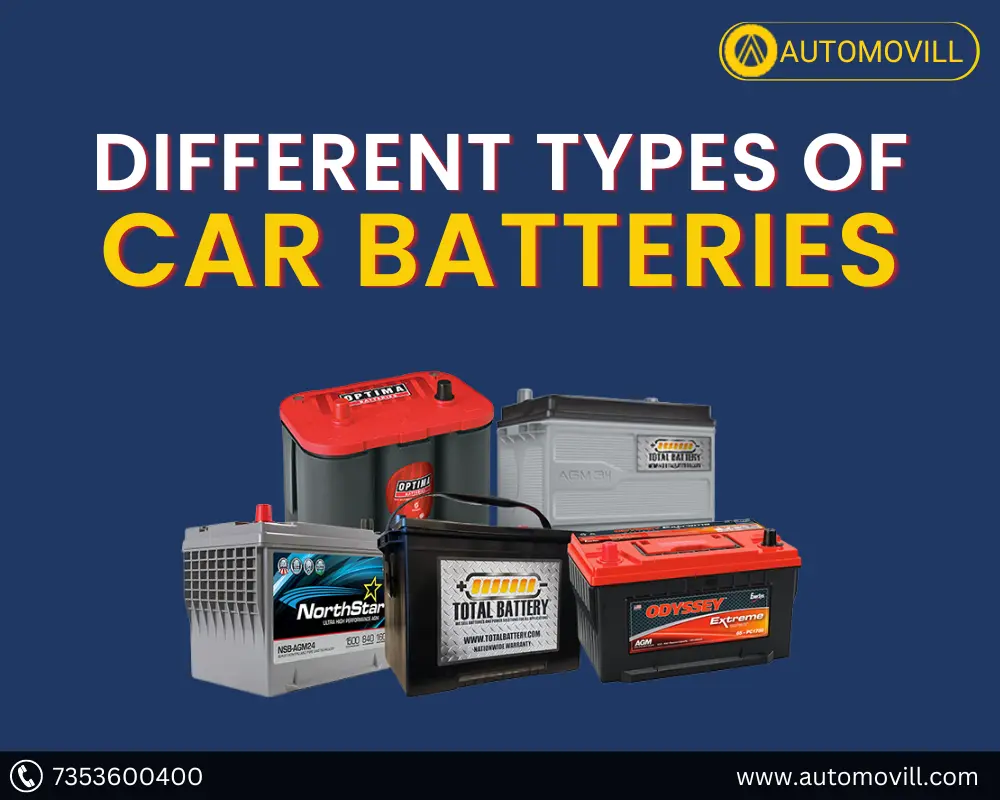
One of a car’s most vital components is its battery. Your car’s battery powers every single component. It provides the starter with power, which ignites the engine. The battery also powers every electric component in your car. Batteries power everything, including the power windows and the headlight. As the world becomes more electric, batteries become even more crucial because they power the car’s propulsion as well. What are the best batteries, though? What are the many battery types?
These thoughts cross your mind while you search for a new powerhouse.
There are several types of automotive batteries available in the market, and they differ in their chemistry, construction, and performance.
Common Types of Car Batteries
- Lead-acid batteries: These are the most common type of automotive batteries, and they have been around for over a century. They are inexpensive and reliable and are used in most cars, trucks, and motorcycles. They work by using lead plates and an electrolyte solution to create a chemical reaction that produces electricity.
- Lithium-ion batteries: These are a newer type of automotive battery and are becoming increasingly popular due to their high energy density and longer life. They are commonly used in electric and hybrid vehicles and are more expensive than lead-acid batteries.
- Nickel-metal hydride (NiMH) batteries: These were once the preferred battery technology for hybrid vehicles, but they are becoming less common as lithium-ion batteries become more prevalent. They are more durable and longer-lasting than lead-acid batteries, but they are also more expensive.
- Absorbent Glass Mat (AGM) batteries: These are a type of lead-acid battery that uses a glass mat separator to absorb the electrolyte. They are commonly used in high-performance vehicles and motorcycles as they have a higher power output and are more resistant to vibration and shock.
- Flooded batteries: These are the traditional lead-acid batteries that have been used for decades. They require regular maintenance, including topping up the electrolyte, and are less durable than AGM batteries.
- Gel batteries: These are another type of lead-acid battery that uses a gel electrolyte instead of a liquid one. They are more expensive than flooded batteries but have a longer lifespan and require less maintenance.
Each type of battery has its advantages and disadvantages, and the choice of battery will depend on the specific application and requirements of the vehicle.
Choosing The Right Battery
Choosing the right car battery is important to ensure that your vehicle starts reliably and performs well. Here are some factors to consider when choosing a car battery:
- Compatibility: The battery must be compatible with your vehicle’s make and model. Consult your owner’s manual or a reputable auto parts store to find the right battery for your vehicle.
- Size: The battery must fit properly in your vehicle’s battery tray. Check the dimensions of the battery and compare them with the size of the tray to ensure a proper fit.
- Type: Consider the type of battery that will best suit your needs. For example, if you live in a cold climate, a battery with a higher cold cranking amp (CCA) rating may be required to ensure reliable starts in cold temperatures.
- Brand: Choose a reputable brand with a good reputation for quality and reliability.
- Warranty: Look for a battery with a good warranty. A longer warranty can provide added peace of mind and protection against defects or premature failure.
- Price: Consider your budget, but remember that a cheaper battery may not last as long or provide as much performance as a higher-quality battery.
By considering these factors, you can choose a car battery that will meet your needs and provide reliable performance for your vehicle. It’s also a good idea to have your battery tested regularly and replace it before it fails, to avoid unexpected breakdowns.
